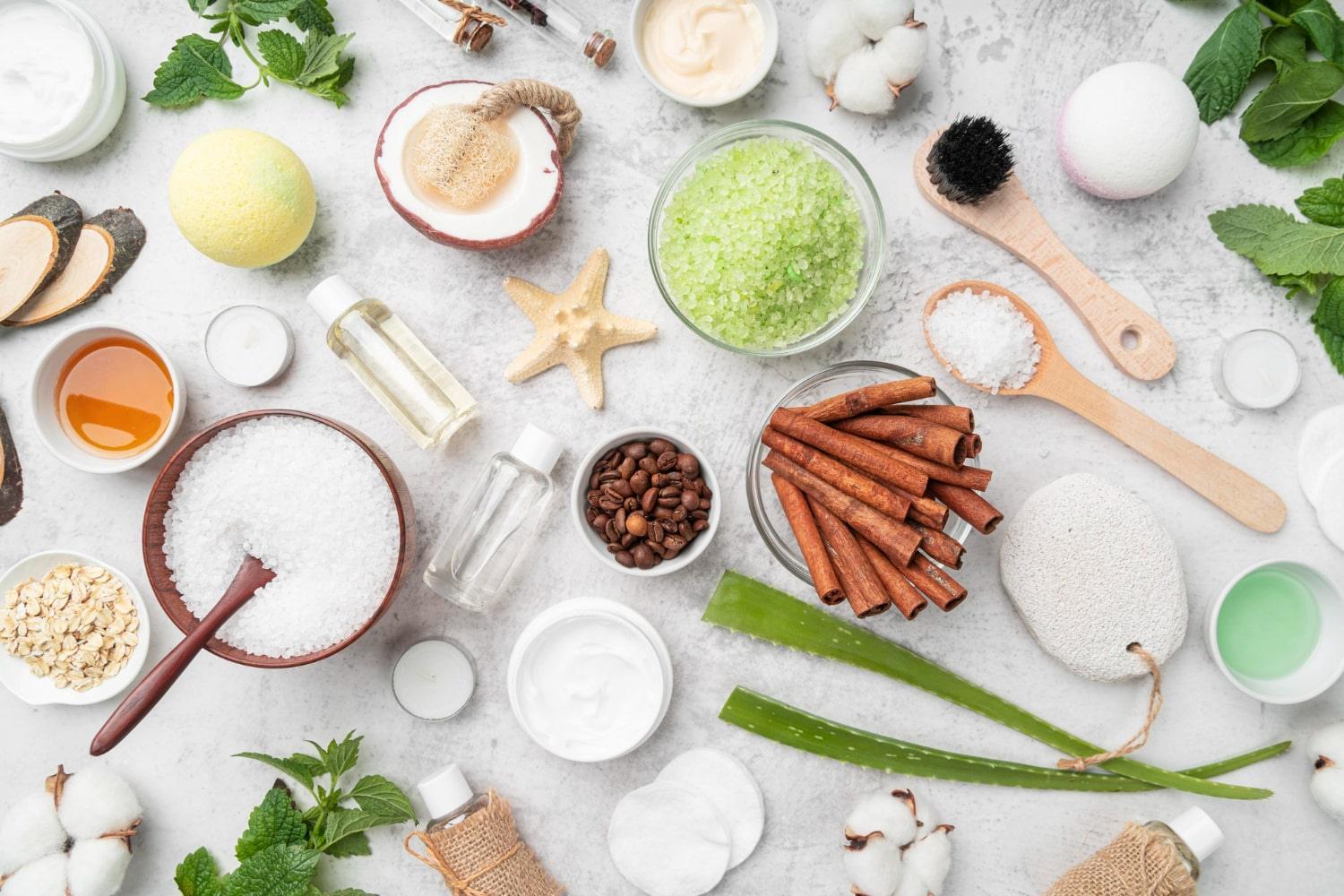7 Natural Remedies to Boost Your Digestion Today! If you’re feeling bloated, sluggish, or just plain uncomfortable after meals, you’re not alone. Digestive issues are common, but they don’t have to be a part of your daily life. With the right natural remedies, you can actually support your gut health and feel vibrant again.
Digestion is the intricate process your body uses to break down food, absorb nutrients, and eliminate waste. When this system is functioning well, you feel energized and healthy. But when it’s not, it can lead to everything from bloating to fatigue. Knowing how to care for your digestive system is crucial for your overall well-being. Let’s explore seven natural remedies that can make a real difference.
Contents
- 1. Probiotics: Your Gut’s Best Friend
- 2. Ginger: Nature’s Digestive Aid
- 3. Peppermint: A Soothing Herb for Your Stomach
- 4. Apple Cider Vinegar: The Tangy Tonic
- 5. Fiber: Your Digestive Superhero
- 6. Hydration: The Overlooked Key
- 7. Mindful Eating: The Art of Slowing Down
- Putting It All Together
- Bottom Line
- FAQs
1. Probiotics: Your Gut’s Best Friend
Probiotics are live bacteria that are good for your health, particularly your digestive system. They help balance the gut flora, promoting better digestion and nutrient absorption.
Why They Matter:
- They can help alleviate symptoms of IBS (Irritable Bowel Syndrome).
- They may reduce the risk of digestive infections.
How to Get Them:
- Foods: Incorporate yogurt, kefir, sauerkraut, and kimchi into your diet.
- Supplements: If you prefer a more concentrated form, consider high-quality probiotic supplements. Look for ones with diverse strains and high CFU counts.
2. Ginger: Nature’s Digestive Aid
Ginger is not just a tasty addition to your meals; it’s also a powerful digestive aid. This root has been used for centuries to alleviate various digestive issues.
Why It Works:
- Ginger can increase the production of digestive enzymes, helping your body break down food more efficiently.
- It reduces bloating and gas.
How to Use It:
- Tea: Steep fresh ginger in hot water for a soothing tea.
- In Cooking: Add it to stir-fries, soups, or smoothies.
3. Peppermint: A Soothing Herb for Your Stomach
Peppermint isn’t just for freshening your breath; it’s also a great remedy for digestive discomfort. This herb contains menthol, which has a soothing effect on the digestive system.
Benefits:
- It relaxes the muscles of the gastrointestinal tract, reducing spasms.
- It can alleviate symptoms of IBS.
Ways to Enjoy:
- Tea: Brew peppermint tea for a calming after-meal drink.
- Oil: Use peppermint oil capsules or diluted essential oil for topical application (on the abdomen).
4. Apple Cider Vinegar: The Tangy Tonic
Apple cider vinegar (ACV) has gained popularity as a natural remedy for various health issues, including digestion. Its acidity may help boost stomach acid levels, aiding digestion.
Why It’s Beneficial:
- Helps break down food more effectively, making nutrients more accessible.
- Can help with bloating and gas.
How to Use It:
- Drink: Mix one to two tablespoons of ACV in a glass of water before meals.
- Dressings: Use it in salad dressings for an added zing.
5. Fiber: Your Digestive Superhero
A diet rich in fiber is essential for good digestion. It helps regulate bowel movements, preventing constipation and promoting gut health.
Types of Fiber:
- Soluble Fiber: Found in oats, beans, and fruits, it helps manage cholesterol and blood sugar levels.
- Insoluble Fiber: Found in whole grains and vegetables, it adds bulk to stools and helps food move through the digestive tract.
Tips to Increase Fiber:
- Start your day with a high-fiber breakfast like oatmeal or whole grain toast.
- Snack on fruits, vegetables, or nuts.
6. Hydration: The Overlooked Key
Staying hydrated is crucial for digestion. Water helps break down food so your body can absorb nutrients effectively.
Why It Matters:
- It prevents constipation by softening stools.
- It helps transport nutrients throughout your body.
- Aim for at least eight 8-ounce glasses of water daily.
- Include hydrating foods like cucumbers, oranges, and watermelon.
7. Mindful Eating: The Art of Slowing Down
In our fast-paced lives, we often rush through meals, which can lead to digestive issues. Mindful eating encourages you to pay attention to what and how you eat.
Benefits of Mindful Eating:
- It promotes better digestion by allowing your body time to process food.
- It can help you recognize hunger and fullness cues.
How to Practice:
- Sit down at the table without distractions.
- Chew slowly and savor each bite.
Putting It All Together
Incorporating these seven natural remedies into your daily routine can significantly improve your digestion. It’s about finding what works best for your body and making small, sustainable changes.
Remember:
- Listen to your body; it often knows what it needs.
- Consult a healthcare professional if you have ongoing digestive issues.
Bottom Line
Boosting your digestion is not just about feeling better; it’s about enhancing your overall health and well-being. By embracing these natural remedies, you’ll be taking proactive steps toward a healthier, happier you. Start today, and enjoy the vibrant life you deserve!
FAQs
Q: How long does it take to see results from these remedies?
A: Many people notice improvements within a few days, while others may take a few weeks. Consistency is key!
Q: Can I combine these remedies?
A: Absolutely! Many of these remedies complement each other beautifully. Just listen to your body and adjust as needed.
Q: Are there any side effects to be aware of?
A: While most natural remedies are safe, it’s always wise to consult with a healthcare professional, especially if you’re pregnant, nursing, or on medication.
Embrace these natural remedies, and take charge of your digestion today!
Get Your FREE Natural Health Guide!
Subscribe now and receive our exclusive ebook packed with natural health tips, practical wellness advice, and easy lifestyle changes, delivered straight to your inbox.





